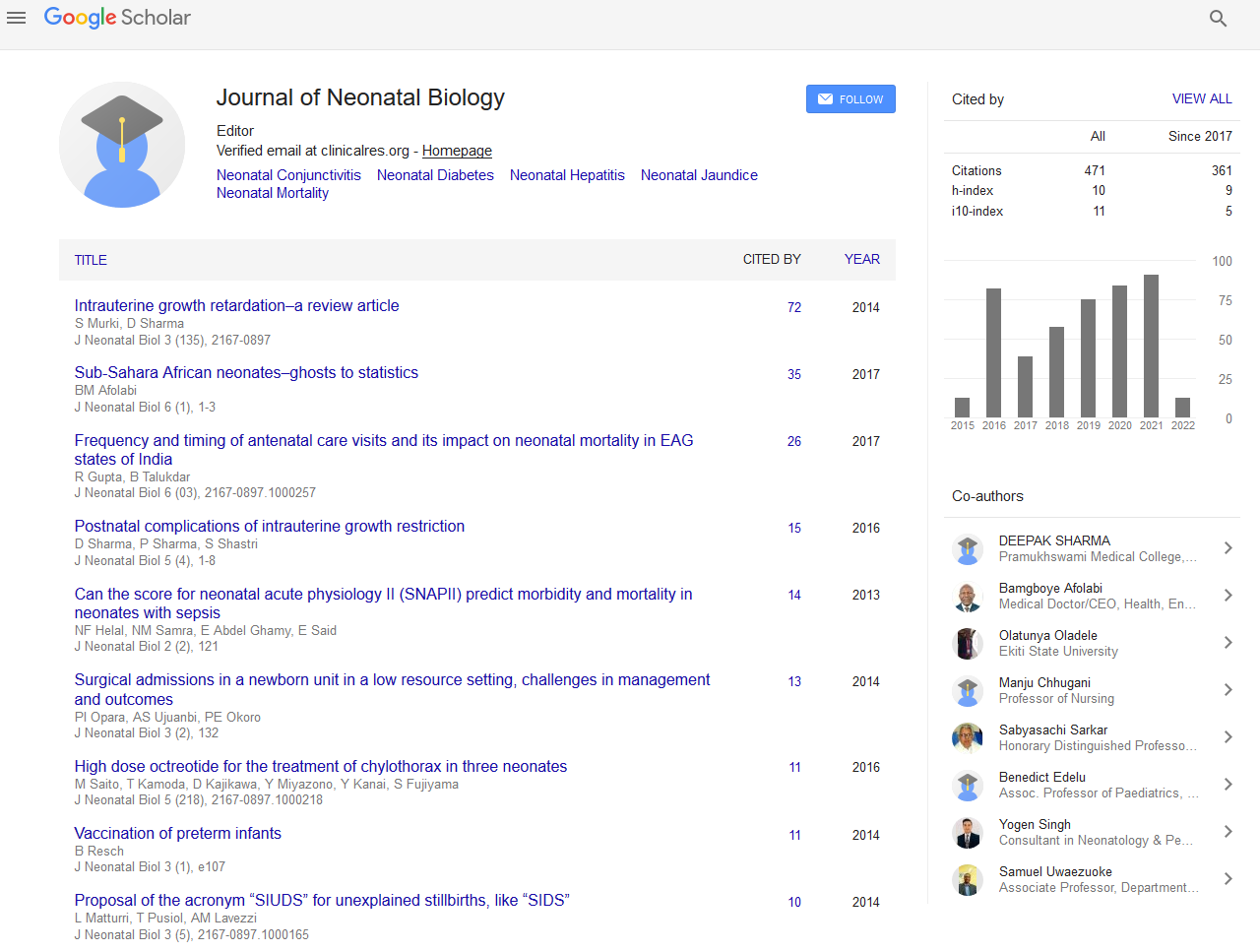PMC/PubMed Indexed Articles
Indexed In
- Genamics JournalSeek
- RefSeek
- Hamdard University
- EBSCO A-Z
- OCLC- WorldCat
- Publons
- Geneva Foundation for Medical Education and Research
- Euro Pub
- Google Scholar
Useful Links
Share This Page
Journal Flyer

Open Access Journals
- Agri and Aquaculture
- Biochemistry
- Bioinformatics & Systems Biology
- Business & Management
- Chemistry
- Clinical Sciences
- Engineering
- Food & Nutrition
- General Science
- Genetics & Molecular Biology
- Immunology & Microbiology
- Medical Sciences
- Neuroscience & Psychology
- Nursing & Health Care
- Pharmaceutical Sciences
Toll-like receptors in the human amnion: A possible role in membrane weakening
9th International Conference on Neonatology and Pediatric Neurology
November 28-30, 2016 Valencia, Spain
Claire Kendal Wright
Chaminade University of Honolulu, USA
Univeristy of Hawaii at Manoa, USA
Scientific Tracks Abstracts: J Neonatal Biol
Abstract:
Infection accounts for over 40% of preterm premature rupture of the fetal membranes (PPROM), a major cause of preterm birth. Toll-like receptors (TLR) play key roles in pathogen surveillance in many tissues but their expression and function in amnion mesenchymal cells (AMC) is unknown. The aims of this study were to determine the expression of all TLR isoforms and the effect of macrophage-activating lipoprotein-2 (MALP-2) on human AMC. AMC were isolated from normal, term, amnion at repeat caesarean section. Semi-quantitative RT-PCR, immunocytochemistry, immunohistochemistry and western blotting were used to detect TLR isoform expression. Immunocytochemistry of NF-κB p65, pro-inflammatory cytokine secretion (ELISA), MTT assay, LDH assay, immunoblotting of cytosolic cytochrome c and cleaved caspase-3, and expression of 84 microRNAs by Qiagen miRNA PCR array were used to determine the functional effect of MALP-2 on AMC. TLR1-10 was detected in AMC, and protein expression of TLR2, 4 and 6 were confirmed. MALP-2 induced nuclear translocation of p65, reaching significance after 45 minutes (ANOVA, P<0.05). MALP-2 did not cause apoptosis but did lead to significant secretion of IL-4, IL-6 and IL-8 (P<0.05, 0.01, 0.001, respectively) and significant changes in miRNA-320a and miRNA-18a (P<0.05). These results suggest that AMC elicit a pro-inflammatory response following stimulation with the known TLR2/6 ligand MALP-2. This data supports the idea that AMC express the innate immune system receptors that could help with immune surveillance during infection and contribute to inflammatory responses that lead to PPROM.
Biography :
Claire Kendal Wright has completed her PhD from The Open University, UK in Neuropathology and Post-doctoral studies from Imperial College London and The University of Hawaii in Neuroscience and Reproductive Biology, respectively. She is now an Assistant Professor at Chaminade University of Honolulu, and the John A Burns School of Medicine where her research program focuses on understanding the normal and pathological mechanisms of human fetal membrane weakening.
Email: claire.wright@chaminade.edu


